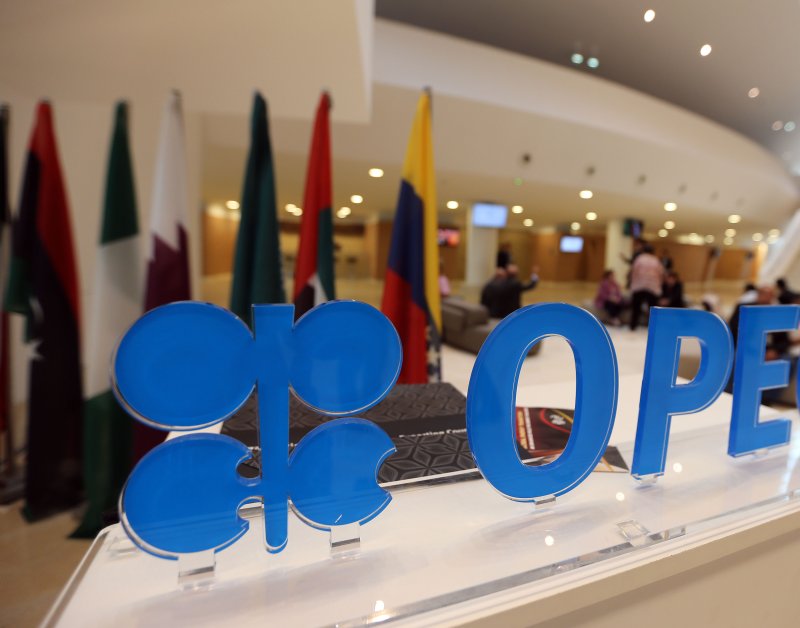1 of 2 | The Organization of the Petroleum Exporting Countries opted to stick with current production allotments. The decision, analysts said, reflects uncertainty about the direction of the global economy. File photo by Mohamed Messara/EPA-EFE
Feb. 1 (UPI) -- Crude oil prices on Wednesday were on the decline after a decision from an OPEC-led group to maintain current production levels, a reflection of an uncertain economic future.
A technical committee for the Organization of the Petroleum Exporting Countries held a virtual meeting on Wednesday to review production allotments. The group meets regularly to consider production quotas and made no recommendation to change current policies.
All participating countries were called on to meet existing quotas. The decision was widely expected after the International Monetary Fund said the energy crisis stemming from the war in Ukraine was "not as bad as initially expected."
Economic growth proved surprisingly resilient in the third quarter of last year, with strong labor market, robust private demand, and better-than-expected adaptation to the energy crisis in Europe," it said.
The IMF revised its forecast for global economic growth higher, from 2.7% to 2.9%, though the United States and the European Union are expected to account for only 10% of global growth. China and India -- two countries that are still taking in Russian fuels -- should account for about half of the global growth this year.
That should soothe concerns in Russia, which is largely isolated from Western economies due to sanctions. Russia is party to the joint committee that reviews production allotments, and while comments from ministers involved in the decision-making process were scarce, the decision was seen as a cautious approach to an uncertain economic future.
"It's fair to say that, considering the uncertainty on China's reopening and how the European oil embargo hits Russian oil production, the path of least resistance was to keep the production unchanged," analysts at Swiss investment bank UBS told UPI.
Despite the upbeat assessment from the IMF, there were still downside risks to its forecast.
"China's recovery could stall, caused by greater-than-expected economic disruptions caused by COVID infections, or by a sharper-than-expected slowdown in the property sector," it stressed.
That uncertainty was apparent in the direction of crude oil prices on Wednesday. Broader markets were in the black for the start of trading on Wall Street, though energy indices gave up most of their gains after OPEC's announcement.
The price for Brent crude oil, the global benchmark, was down 0.7% as of 10 a.m. EST to trade at $84.87 per barrel.















